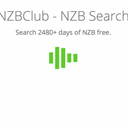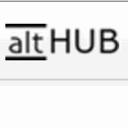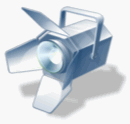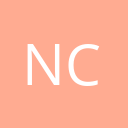Uncovering the Best Newznab Plus Alternatives for Your Usenet Needs
Newznab Plus, the commercial version of the popular newznab usenet indexing application, has long been a go-to for building robust usenet communities. It offers impressive features like Message Release Grouping, super-fast Sphinx Integration for searching, SEO-Friendly URLs, and simple CMS capabilities. However, users often seek a Newznab Plus alternative for various reasons, including cost, specific feature needs, or a preference for open-source solutions. This article explores some of the top contenders that can admirably fill the void.
Top Newznab Plus Alternatives
Whether you're looking for a free solution, an open-source option, or a service with specific functionalities, this list of Newznab Plus alternatives offers a diverse range of choices to help you manage and access your usenet content efficiently.

Binsearch
Binsearch is a widely used Newznab Plus alternative for searching and browsing binary Usenet newsgroups. It indexes nearly every binary newsgroup supported by major Usenet providers, making it a comprehensive search engine. It's a free, web-based platform, making it highly accessible for anyone needing a straightforward Usenet search tool.

drunkenslug.com
drunkenslug.com is a Usenet indexer that serves as a viable Newznab Plus alternative, offering SSL for secure connections and seamless integration with popular tools like Couch Potato, Sonarr, and Sabnzbd. It's a free, web-based service, focusing on providing essential indexing capabilities for users needing direct integration with their media management software.

NZBClub
NZBClub automatically indexes Usenet almost in real-time, making it an excellent Newznab Plus alternative for rapid NZB search. It focuses on providing fewer, more relevant results from popular Usenet newsgroups, streamlining the browsing experience. It's a free, web-based platform ideal for users who prioritize speed and efficiency in their Usenet searches.

altHUB
altHUB is a newznab-based Usenet indexer, offering a familiar experience for those accustomed to Newznab Plus. As a freemium, web-based service, altHUB provides strong indexing capabilities for users who appreciate the newznab architecture but might be looking for a different access model or community.

Spotweb
Spotweb is a decentralized Usenet community based on the Spotnet protocol, making it a unique and powerful Newznab Plus alternative. It's free and open-source, available on Mac, Windows, Linux, and can be self-hosted with a PHP5-enabled web server and MySQL or other database. Its support for the Spotnet Protocol and Usenet indexing offers a community-driven approach to content discovery.

Spotnet
Spotnet is a Usenet client that utilizes a peer-to-peer indexing method, where users 'spot' content for others, providing a decentralized Newznab Plus alternative. It's a free Windows-based client that supports the Spotnet Protocol and Usenet indexing, ideal for users who prefer a client-side solution with community-driven content sharing.

nZEDb
nZEDb is an open-source Usenet indexer that automatically scans Usenet, similar to how Google bots scan the internet, providing a robust Newznab Plus alternative. It's free and self-hosted, offering a web-based front-end for users who desire full control over their Usenet indexing solution and want to leverage its comprehensive scanning capabilities.

Newznab Classic
Newznab Classic is the open-source version of the Newznab application, making it a natural and direct Newznab Plus alternative. It allows users to easily build a Usenet community with its robust indexing capabilities. It's free and self-hosted, providing an ideal solution for those who prefer an open-source, customizable platform without the commercial features of Newznab Plus.
Choosing the right Newznab Plus alternative depends entirely on your specific needs, whether that's a free, open-source solution, a web-based service with specific integrations, or a self-hosted option for maximum control. Explore these alternatives to find the best fit for your Usenet indexing and community-building requirements.